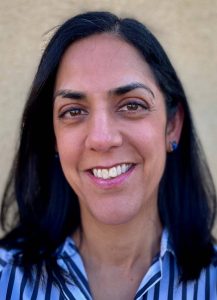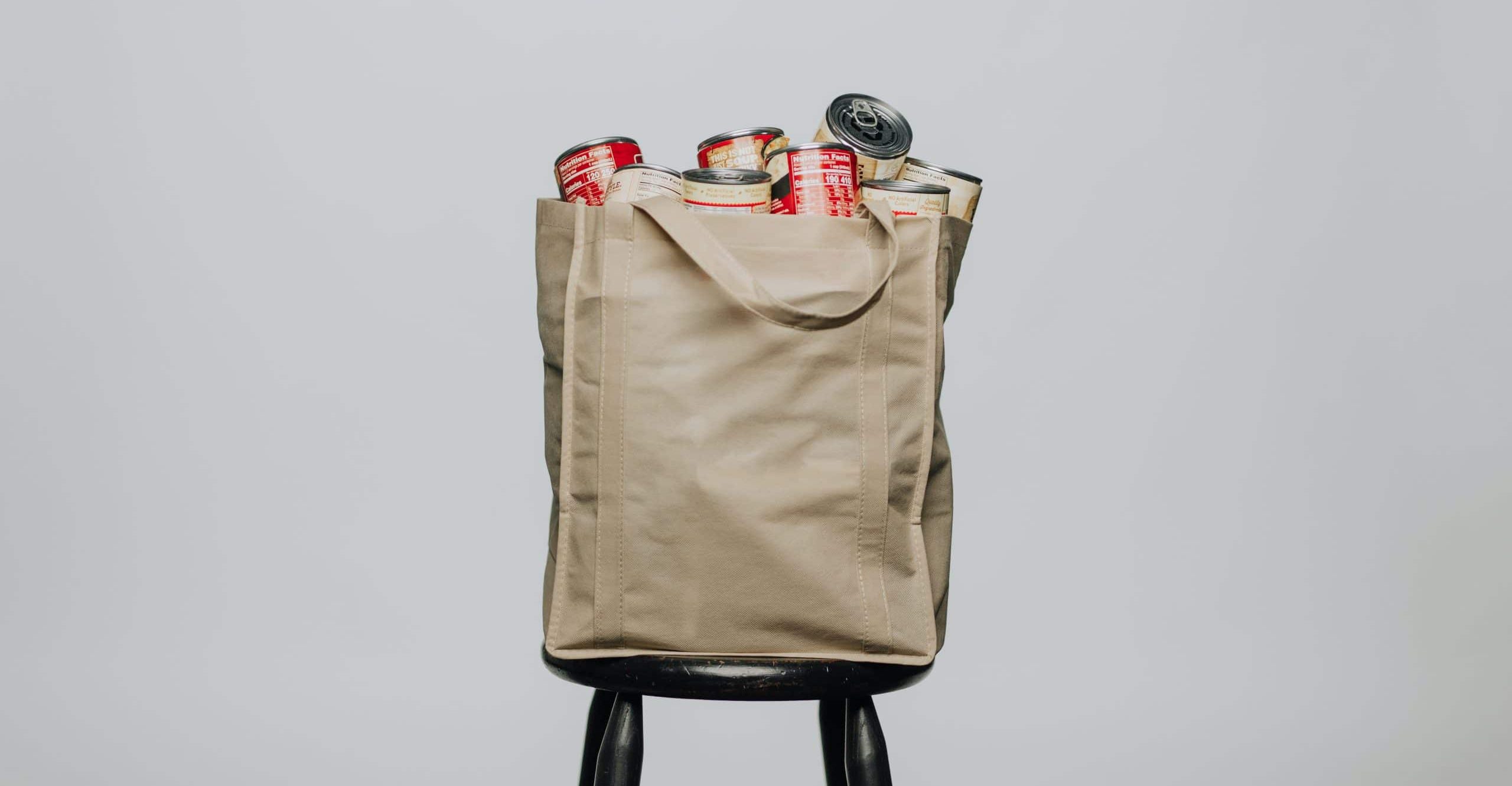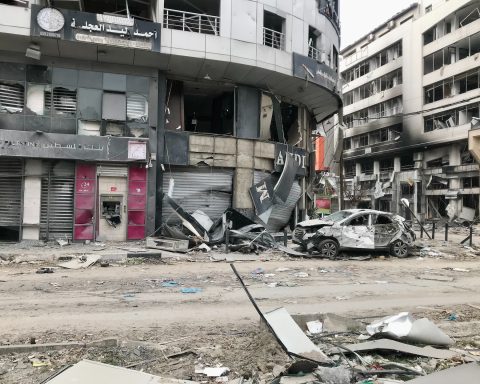
In the past few months the UK population has experienced compounded cost of living increases amongst soaring costs and decreases in real income. The current cost of living crisis is making life ever more difficult for families living on the knife edge of poverty, and we know that poverty is bad for your health. The poorer you are, the more likely you are to die from heart disease, lung cancer and chronic lower respiratory illnesses as well as suicide.1 The cost of living crisis is not only making our society poorer but also more systematically unfair. Health inequalities are caused by a wide range of factors, such as income, housing and transport, which are all being targeted by price rises. This slide into increased poverty and health inequalities is deeply worrying for healthcare professionals who see the direct impact on their patients’ lives. I will focus here on just two areas: fuel poverty and food insecurity, as areas where primary care can, and perhaps should, get involved.
Fuel poverty
The poorer you are, the more likely you are to die from heart disease, lung cancer and chronic lower respiratory illnesses as well as suicide.
With spiralling fuel prices and a planned scrapping of the energy price cap in the autumn, industry experts warn that up to 40% of households could fall into fuel poverty. Fuel poverty disproportionately affects older people, amongst whom colder homes lead to an increased risk of cardiovascular disease, respiratory illnesses and falls.(2) Home visits are an insightful window into the lives of our patients, and GPs and district nurses are well placed to identify people who live in cold or hard to heat homes; especially amongst the vulnerable elderly who spend long periods of time at home. NICE guidance recommends that the heating needs of people should be assessed annually, with referrals to local health and housing services as required.2
How does the NICE guidance translate to practice? Back in 2017, the RCGP ran a fuel poverty pilot in Wiltshire that automatically flagged a patients GP record if they were at risk of deterioration due to cold homes and prompted primary care practitioners (not just GPs) to speak to patients about heating their home. If the patient needed support, practitioners were directed to an automatic referral to a local warm homes service. Overall, the pilot found that relatively few patients were actually referred, but interestingly running the pilot led to a culture change within the involved practices, with practitioners beginning to understand their role in addressing cold homes and fuel poverty.3
Links between practices, local authorities and the voluntary sector can take time to develop and evolve. Citizen’s Advice have developed a toolkit on ‘Building cold homes referrals with the health sector’ which includes information about developing and maintaining local referral pathways. As with any new initiative, building these links requires local champions to identify fuel poverty and energy efficiency programmes to support vulnerable people living in cold homes within their area.
Food insecurity
You could make it simpler than this to screen for poverty – and just ask, ‘Do you (ever) have difficulty making ends meet at the end of the month?’
Food prices are increasing rapidly, with grocery price inflation levels above 5% in April. Food insecurity is intrinsically linked to adverse health outcomes, especially amongst children, with increased risks of chronic disease and mental illness later in life.4 The first step must be to identify the scale of the problem, and indeed, some posit that doctors have an ethical obligation to ask about food insecurity.5 The Hunger Vital Sign screen identifies households at being at risk for food insecurity if they answer that either or both of the following two statements is often true or never true:
‘Within the past 12 months we worried whether our food would run out before we got money to buy more’
‘Within the past 12 months the food we bought just didn’t last and we didn’t have money to get more’6
You could make it simpler than this to screen for poverty – and just ask, ‘Do you (ever) have difficulty making ends meet at the end of the month?’.7 Being armoured with this information, however, is only half the battle. As Knight and Fritz write, ‘doctors may feel impotent to deal with food insecurity, even if they are empowered to unearth it.’5 As with fuel poverty, acting upon food insecurity requires local solutions such as knowledge of food banks, which can be challenging. Directing patients to Citizen’s Advice is a good first step, as advisers can signpost and refer to food banks as required.
We need to ask
The questions we ask, or don’t ask our patients at a micro-level can affect macro-level debate and discussion. As Andrew Moscrop and colleagues note, ‘By not asking patients about their social circumstances or recording socioeconomic data, doctors help to conceal these problems from public view and from the political agenda’.8 Especially in the cases of fuel and food poverty, it is up to practices and PCNs to identify, record, and refer to local services. It seems that for the foreseeable future, households in the UK are going to feel the squeeze of higher inflation and the corresponding impact on health. And as GPs, we are well placed to understand the social context of physical and mental health illnesses and the complex cycles that trap our patients in poverty and ill health.
References
- England PH. Health profile for England: 2018. 2018. Available from: https://www.gov.uk/government/publications/health-profile-for-england-2018/chapter-5-inequalities-in-health.
- Excellence NIfHaC. Excess winter deaths and illness and the health risks associated with cold homes. 2015.
- Eadson WG, T.; Povey, L. Evaluation of Royal College of GPs: Fuel Poverty Pilot. Centre for Regional Economic and Social Research; 2017.
- Gundersen C, Ziliak JP. Food Insecurity And Health Outcomes. Health Aff (Millwood). 2015;34(11):1830-9.
- Knight JK, Fritz Z. Doctors have an ethical obligation to ask patients about food insecurity: what is stopping us? J Med Ethics. 2021.
- Hager ER, Quigg AM, Black MM, Coleman SM, Heeren T, Rose-Jacobs R, et al. Development and validity of a 2-item screen to identify families at risk for food insecurity. Pediatrics. 2010;126(1):e26-32.
- Brcic V, Eberdt C, Kaczorowski J. Development of a tool to identify poverty in a family practice setting: a pilot study. Int J Family Med. 2011;2011:812182.
- Moscrop A, Ziebland S, Bloch G, Iraola JR. If social determinants of health are so important, shouldn’t we ask patients about them? BMJ. 2020;371:m4150.
Featured image by Austin Kehmeier on Unsplash









Nada Khan is an Exeter-based NIHR Academic Clinical Fellow in general practice and GPST4/registrar, and an Associate Editor at the BJGP. She is on Twitter: @nadafkhan
It is a scandal that in our society, the rich are getting richer and healthier, whilst the poor are getting poorer and dying younger. The Marmot ’10 Years On’ Review showed that not only have improvements in the social gradient of life expectancy stalled in England, that it worsened in the period between 2010-12 to 2016-2018. Women in the most deprived 10 percent of areas are dying younger than they were in 2010. As noted in the review, ‘if health has stopped improving it is a sign that society has stopped improving’.1
The Covid pandemic has worsened existing inequity and created new socio-economic disparities that are only being exacerbated by the cost of living crisis. COVID-19 was a discriminatory virus, disproportionately infecting and killing people in the Black and South Asian communities during the first wave. These groups are also disproportionately represented in high-risk occupations and more likely to be living in deprived areas with comorbid disease, factors themselves that are the result of inequalities and structural racism. It feels sometimes like we are trapped in a self-perpetuating hamster wheel driving society towards more inequity and poorer health outcomes. As Mark Riley wrote for BJGP Life, ‘the impact of health inequalities we witness now in the Covid-19 pandemic are an indictment of society’s efforts to tackle them’.
In 2020, Sir Michael Marmot and his team at the Institute of Health Equity published ‘Build Back Fairer’ to examine how the Covid pandemic affected health inequalities in England.2 The findings of the Build Back Fairer report in terms of inequity and Covid are stark. The same key messages are echoed throughout the report: low income and non-White households were already struggling, and the Covid pandemic has exacerbated financial and health inequality. The pandemic led to declining incomes, worsening the financial positions of many households already experiencing financial instability and leading to rapid increases in food poverty and homelessness. Our politicians seem focussed on selling us a story that we did well during the Covid pandemic, that our vaccination programme was ‘world leading’, but the reality is that England had one of the highest mortality rates in Europe from Covid, and is suffering badly in terms of the economic and societal repercussions.
Can the pandemic act as a pivot point to make a real change to these embedded inequities in our society? The Build Back Fairer report challenges us to ask ourselves what kind of society we want to build post-Covid. It shouldn’t be a missed opportunity to promote health and reduce social inequity amongst the most vulnerable.
What are the take-home messages from Build Back Fairer for GPs and GP commissioners? Short answer: equity needs to be at the heart of what we do. Longer answer: reducing health inequalities require long-term strategic policies at the practice, primary care network and Integrated Care Systems (ICS) level with equity as the focus.
To reduce inequalities In the short and medium term, the Build Back Fairer report encourages us to consider proportionate allocation of measures to prevent Covid, including vaccination and support to people in high risk occupations or geographical areas. Practices can become more involved with tackling the causes of social inequality through, for example, social prescribing.
At the level of the GP and patient interaction, I have written here in BJGP Life about making food and fuel poverty visible. It is also worth re-reading this piece here in BJGP Life by Will Mackintosh, who views our consultations with patients as the ‘basic unit’ to conceptualise health inequalities and patient freedom. But above all this, is it time for GPs to think more closely about their role as public health leaders and to take a more active role to advocate for political change?
We talk about getting back to normal, but we need to remember that our ‘normal’ society pre-Covid was inequitable, systemically racist and unfair. As noted in Build Back Fairer, ‘normal is not acceptable if that means where we were in February 2020’.2 I balk when writing things that involve sentiments like ‘we should do’ or ‘we need to’; we are all tired, overworked and managing heavy clinical burdens. But what is our alternative when the most underserved and underprivileged people in our society are getting poorer, and dying younger than they were ten years ago? It is a scandal. And I hope we take up the challenge posed to us in ‘Build Back Fairer’ to ask ourselves: what kind of society do we want to live in?
References
Marmot MA, J.; Boyce, T.; Goldblatt, P.; Morrison, J. Health equity in England: The Marmot review 10 years on London: Institute of Health Equity; 2020.
Marmot MA, J.; Goldblatt, P.; Herd, E.; Morrison, J. Build back fairer: The Covid-19 Marmot review. London: Institute of Health Quity; 2020.
Featured image: Bricks from demolition, taken by Andrew Papanikitas 2022